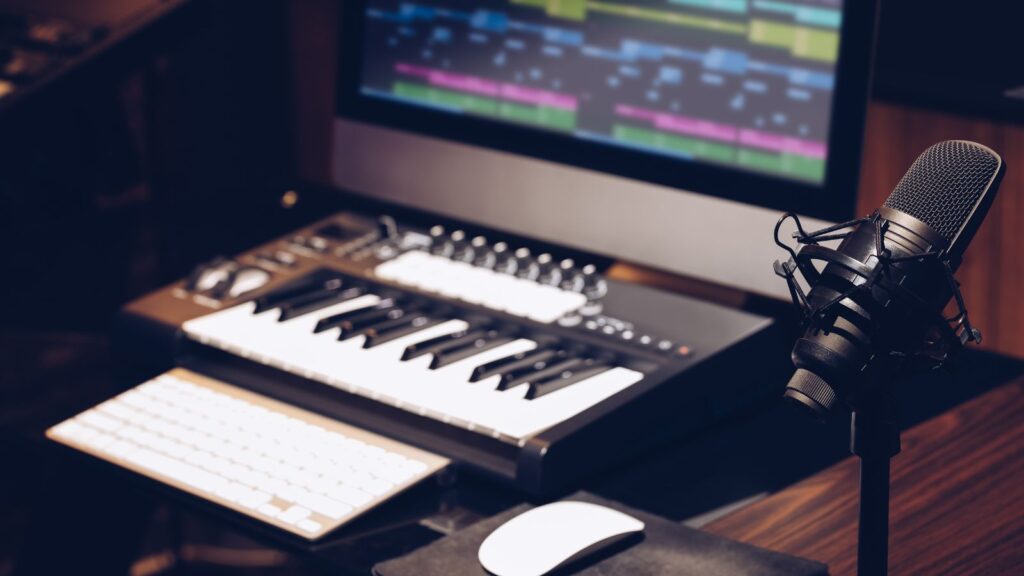A Music Production Degree dives deep into the heart of music, exploring the technicalities behind each rhythm and melody. From learning the intricacies of sound engineering to mastering the art of mixing, this degree offers a comprehensive understanding of music creation.
Whether you’re an aspiring musician, a budding sound engineer, or a music enthusiast, a degree in music production can open up a world of opportunities. Get ready to step into the fascinating world of music, where creativity meets technology.
Music Production Degree
A Music Production Degree provides comprehensive insight into the technical, creative, and practical facets of music creation. Catering primarily to the music industry’s needs, this degree program offers subjects covering a vast area including, but not limited to, sound engineering, acoustics, recording technology, and music theory. It’s designed for anyone with a passion for music, from aspiring musicians to sound engineers, or anyone interested in understanding the nuances of music creation.
Bearing a spotlight on sound engineering, the degree dives deep into the various aspects involved in recording, mixing and mastering music. Modules on acoustics and recording technology offer a detailed understanding of sound behaviour in different environments and how technology aids in capturing and manipulating it. By studying these components, students gain an expert-level knowledge of how to shape music to achieve desired effects.
Infusion of creativity and technological experience is another facet commonly found in a Music Production Degree. This element encourages innovation among students by allowing them to experiment with different genres and styles of music. Through real-world studio experiences, students are given freedom to innovate, leading to the development of unique sounds and styles.
Practical skills play a significant part of this degree, training students in the use of advanced software and hardware used in the industry. It’s hands-on, ensuring they’re equipped with the essential skills needed to work in a professional setting upon graduation.

Considering a Music Production Degree
A decision to pursue a Music Production Degree marks a significant step in a potential music career. As seen in previous sections, a Music Production Degree presents multiple advantages. Let’s consider these factors in detail.
- Industry Relevance: The curriculum aligns with current industry requirements. For example, learning audio mastering techniques such as EQ, compression, and limiting prepares students for real-world challenges.
- Practical Exposure: Real-time experience solidifies theoretical concepts. Training in music recording, for instance, allows students to experience the intricacies of studio work first-hand.
- Career Diversity: Variety in career options is a bonus, with potential career paths including record producer, sound engineer, or music director.
- Prospective Earnings: The Bureau of Labor Statistics indicates a median wage for sound engineering technicians at $43,660, with top earners making more than $100,000 annually.
- Networking Opportunities: Music programs often provide chances to connect with industry professionals, enabling career-launching opportunities.
Further considerations hinge on personal aspirations and resources. Any prospective student must assess tuition costs against potential earnings. Finding value in the coursework plays a critical role, especially if part of the program covers areas of lesser interest. Likewise, the program’s location may warrant consideration, given the prominence of certain cities in music production.

Selecting the Right Music Production Degree
Choosing an appropriate Music Production Degree involves several factors. With a myriad of options available, individuals have diverse considerations including specialisation areas, faculty reputation, and accreditation.
Focus on program specialisations assesses what area of music production someone is most interested in. Scopes ranging from audio engineering and sound design to digital music production and composition are among the choices. For example, someone interested in creating beats might lean towards a degree with digital music production.
Consideration of faculty reputation takes into account the expertise and industry experience of professors. Often, faculty members who’ve had successful careers in music bring valuable insights, mirroring real-world scenarios for their students. For instance, renowned music engineer Dr. Susan Rogers brings her extensive industry history to her role as a professor at Berklee College of Music.
Evaluation of school accreditation ensures the degree is recognized, offering a high-quality education. Accreditation, a process in which an outside body validates that a school or program meets certain standards, brings trust and legitimacy. For example, The National Association of Schools of Music (NASM) gives accreditation for music programs in the United States.

